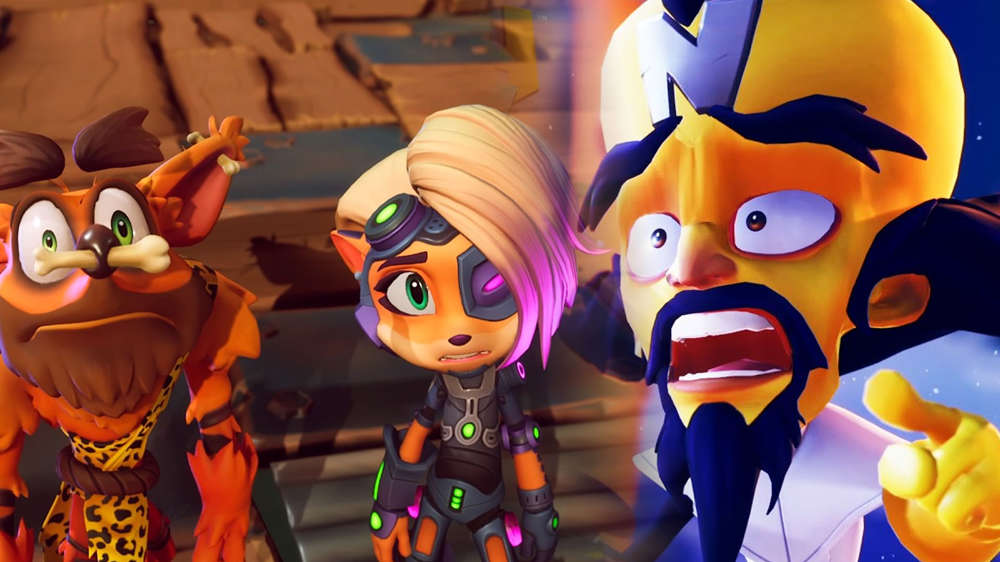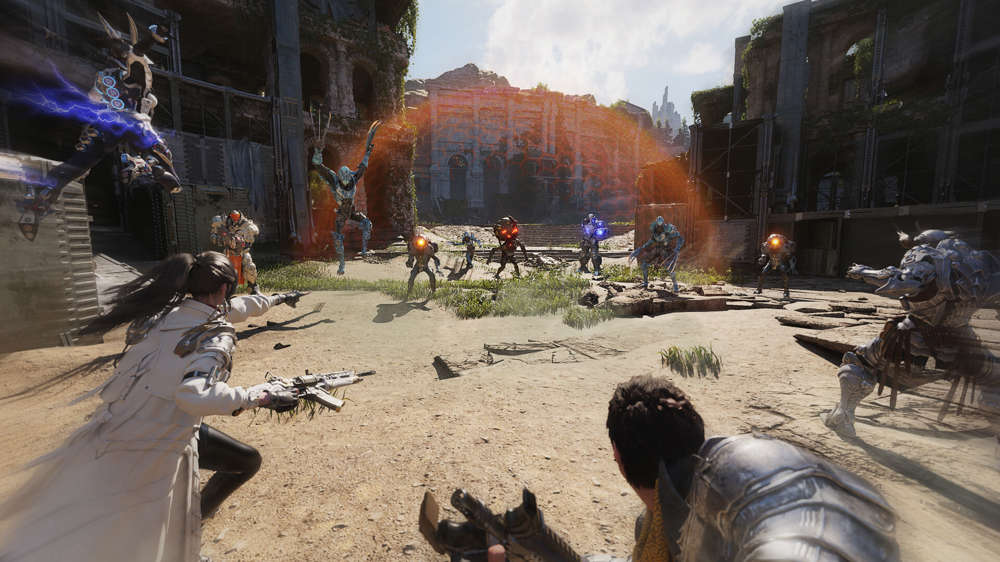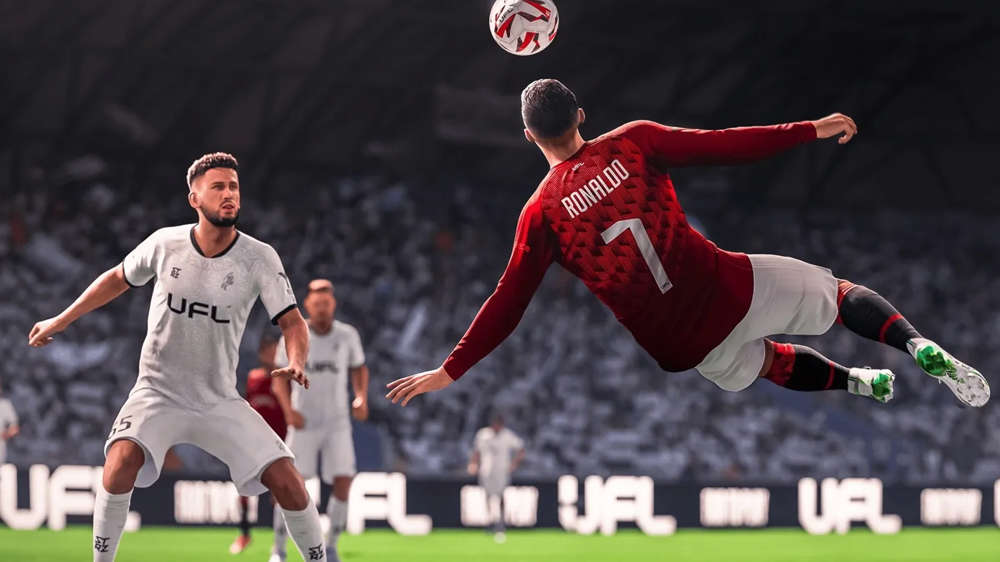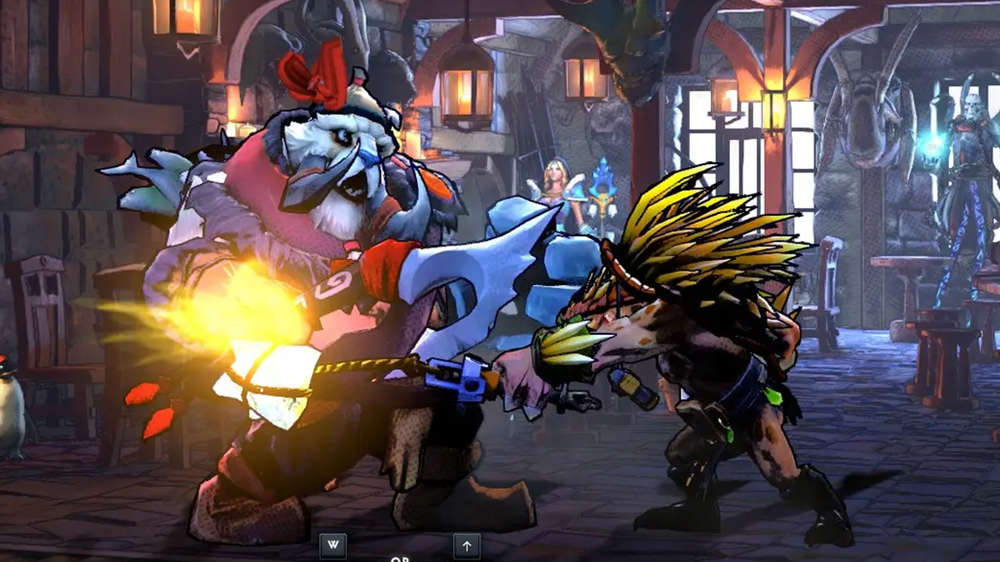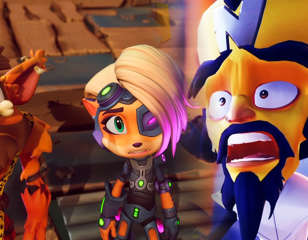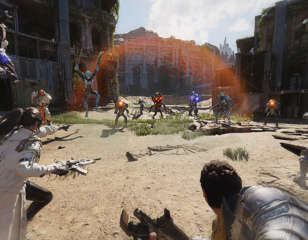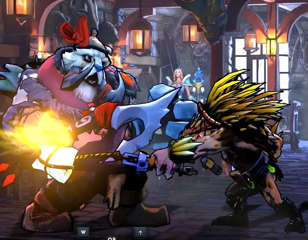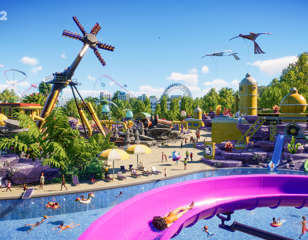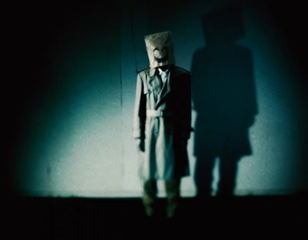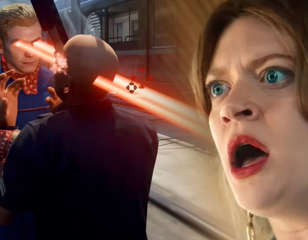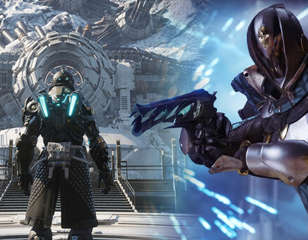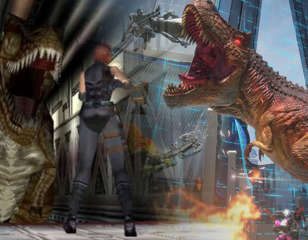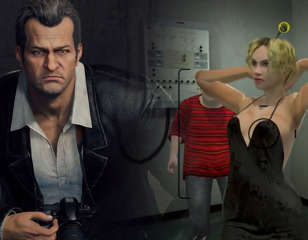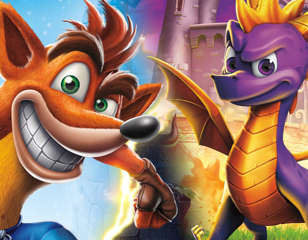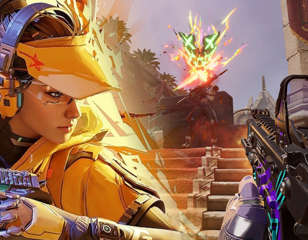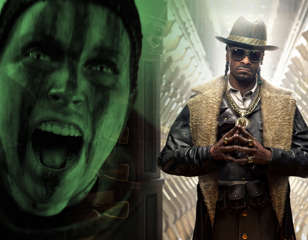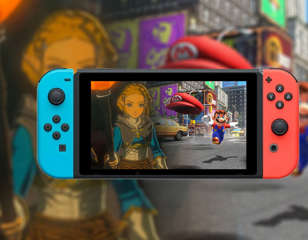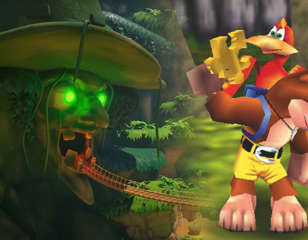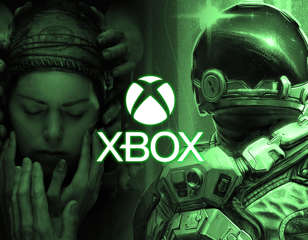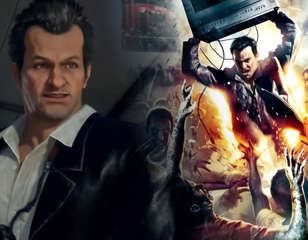Video Game Nostalgia: Is It Time To Let Go?
Old-school video games can be a great form of nostalgia, but is it really time to abandon gaming nostalgia to move on and discover new titles?

Emma Hill
19th Nov 2021 15:23
Image Credit: Unsplash | Sigmund | EA
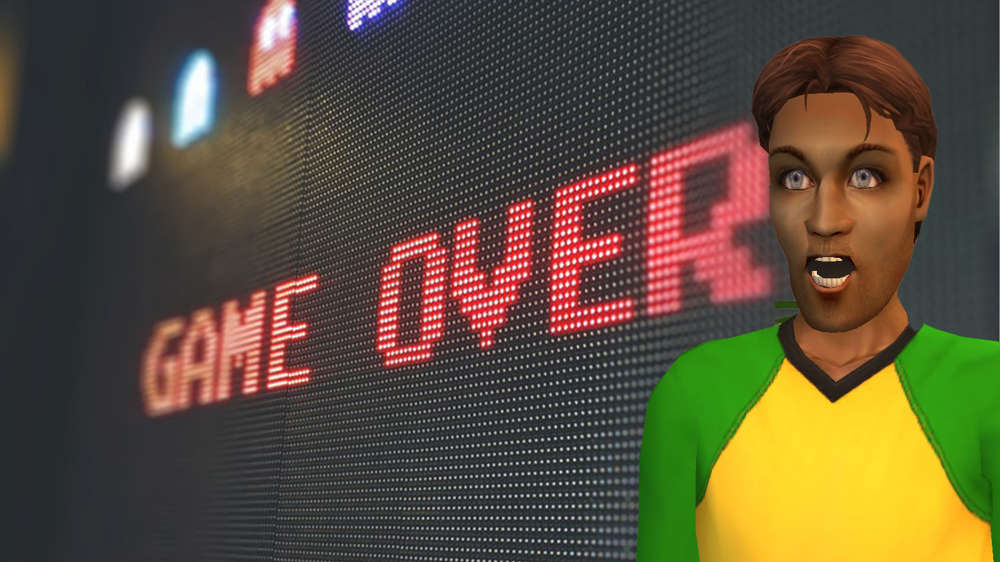
Mainstream media is currently drunk on nostalgia. Whether it’s film, television, or video games, it seems studios across the spectrum are serving barrels upon barrels of reboots and sequels designed to provide audiences with a big slurp full of nostalgic goodness.
In 2021 alone we have seen the likes of Coming 2 America, Halloween Kills, and Ghostbusters: Afterlife from Hollywood. As for video games, studios and game developers have been appealing to the memories of long-time dedicated players through the re-release of some golden gems from the past - remastered for new consoles.
Or, they have completely rebooted these classic titles with completely new games and storylines, but the iconic characters and components of our past are all still there. It’s been a tough old couple of years for us all. With everything going on in the world, it’s no surprise that players are turning to some classic games to recapture the joy of the past.
I’ve certainly not made my love for Skyrim a secret, an adventure that many would consider a nostalgic game. I, also, found myself yearning for the days of Club Penguin and playing The Sims 2 while watching CallMeKevin’s very own chaotic experience with the game.
As well as this, I remember clambering through my things in the hunt for my Nintendo DSi XL while seeking some form of escapism in the comfort of my fifteen-year-old Nintendogs. It seems I certainly wasn’t the only one. From what I heard, all my friends were doing similar things. Some were holding Mario Kart tournaments with their housemates on a Nintendo Wii. Another was spending his lunch breaks while working at a COVID testing site playing Brain Training on his DS.
However, with all the great original games coming to the market, it does beg the question: Is it time to move on? Should we still be playing the games of our past? In playing retro games, do we run the risk of neglecting games with new characters and worlds that deserve our attention?
Hooked On Nostalgia-Bait

Hollywood is reeling in audiences by producing a whole host of reboots and remakes of classic films of our youth. In recent years, Disney has become synonymous with the amount of live-action remakes or sequels of its iconic animated films which continue to bust the box office.
Studios have used every opportunity to highlight the return of the original characters or iconography from the classic films, hoping to tap into the memories of our childhood and building hype for audiences. The emphasis on the return of original cast members or creatives seems to suggest that studios are trying to prove the authenticity of these films and the same can very much can be said for video games.
For example, in the 2019 Remastered version of the Ghostbusters: The Video Game, promotional material expressly emphasised how the original ghostbusters themselves (Bill Murray, Dan Aykroyd, and Ernie Hudson) would all be returning to voice their iconic characters from the classic Halloween film.
Not to mention, Aykroyd and Harold Ramis, the film’s screenwriters, helped write the script for the game's OG release in 2009, much to the delight of fans. Of course, it is worth mentioning how classic video games are going as far as to influence film and TV. For example, there are currently numerous video game screen adaptations on the horizon from Tomb Raider to The Last Of Us.
The Retro Revival

Big-name game developers and studios have certainly taken advantage of the retro revival to pull in the players. However, without a doubt, it is the fans themselves - the ones who helped bring these games their legendary status in the first place - who have helped to keep these classic titles alive.
With everything from a fan-made Shadow Mario mod for Super Mario Sunshine, a Switch-style portable N64 console, to retro Pokemon tattoos, it’s clear that fans are the ones who are leading the charge into pumping new life into these classic games.
As for the hunt for nostalgia from video game developers and publishers, it appears that every week, either Nintendo, Xbox, or PlayStation make an announcement about some form of game reboot set to trigger our gaming memories. For example, Nintendo has been keeping fans happy by slowly releasing a number of classic games from the golden days of the N64 console to the Switch, including GoldenEye 007. Rumours also abound that a reboot of the PS2 classic, Twisted Metal, was in development along with the stripy-tailed sleuth himself Sly Cooper.
While this move has been praised by fans for bringing a new lease of life to their favourite franchises, there are some who question whether studios are only exploiting nostalgia in order to pull in the big bucks. In the process, they run the risk of tainting the original on which they are based on and cause them to get lost in the mists of time.
"Nostalgia Is Ruining Video Games"
There are fans who would argue that by gripping onto the games of our past, we are denying the chance to discover new games for the future. In an article for The Atlantic from 2015, Mark Hill presented a more critical view of nostalgic gaming.
Hill claimed: "We’re less interested in the gaming experience than we are in recreating the memories associated with them." Using Life Is Strange as a microcosm for the gaming industry, Hill said: "There’s nothing inherently wrong with nostalgia for old games, and many of the classics are still tremendous fun.
"But by letting classics dominate yearly releases, the industry is depriving itself of new ideas and voices. Unless players want the future of video games to be nothing but an endless parade of remakes and sequels, it’s time to start letting all those beloved childhood titles gather dust and explore what else is out there."
Similarly, Damien McFerran, from Eurogamer, shared his experience with retro gaming, to the point that he questioned whether the love of the gameplay was the reason for his eclectic collection or whether it was something more worryingly addictive. Writing in 2012, McFerran claimed that he got more enjoyment from getting his hands on a Japanese Mega Drive instead of the latest game console.
The Joy Of Nostalgia

In fairness to McFerran, he did provide a counter-argument to his view from a keen gamer and assistant professor in the Department of Psychology at North Dakota State University, Clay Routledge. Taking a more positive spin on the topic, Routledge claimed that nostalgia can be bittersweet but can, also, prompt a "positive mood, self-esteem, feelings of belongingness, and a sense of existential meaning."
Routledge went on to say: "Research on nostalgia from marketing and consumer psychology does suggest that we are particularly nostalgic about products from our youth [...] The sense of freedom we had when young may create many experiences that we will one day be nostalgic about: having the freedom to spend a significant amount of time with friends or pursuing a hobby."
The controversial topic has also been discussed extensively among players who worry that the focus on retro gaming is having a negative effect on present titles and has actually ruined nostalgia. However, for many fans, these games invoke powerful, treasured memories with loved ones. As one fan shared on Reddit: "Super Mario World brings to mind renting an SNES and playing it with my brother when it was shiny, new, and wondrous.
"I remember playing through and getting all the goals in high school. I remember playing it with my future wife in college because she loves that game, and now I get to make new memories playing it with my son. All those memories are still there, and powering up a game brings them all flooding back in a wonderful way."
Is It Time To Let The Golden Oldies Retire?

There are plenty of solid points made on both sides of the argument here. It’s no surprise to see that there are many who are still very much on the fence about it. Looking for an addictive bit of nostalgic joy may bring back a whole flood of wonderful memories from our youth. Although, are we missing out on the chance to play original new characters and be introduced to fresh characters or stories that deserve recognition?
Even as I’ve been writing this, my thoughts have been toing and froing about what I think exactly but, ultimately, in my opinion-no. Even if we consider that game developers and studios are exploiting nostalgia in some way, we just don’t have to buy the games.
If we were to stop playing these classic titles, then we may as well throw out our turntables and just stop watching any old movies we have in the cupboard. These titles are a piece of video game history and we are lucky that, at a time when technology is progressing so rapidly, that many fans still have access to them.
Sadly, there are many that have been lost to time. However, fans have kept their memory in their hearts and nothing is impossible. Without such reboots, new players would never be able to experience some fantastic characters.
On a more logical point, gaming can be a highly expensive way of life. Of course, there are extremely rare, classic games that can cost hard-core players a pretty penny. Yet, generally, last-gen consoles and games are considerably cheaper and more easily available, making video games accessible to all.
More than anything, I can’t stop thinking about what Routledge said about how nostalgic gaming can provide a "positive mood, self-esteem, feelings of belongingness, and a sense of existential meaning." With this in mind, how can it possibly be considered to be a bad thing? Let us enjoy our piece of nostalgic pie while we still can. Now, if you need me, I’ll be in my igloo with my puffle.

About The Author
Emma Hill
Emma Hill is a former Junior Journalist at GGRecon.
